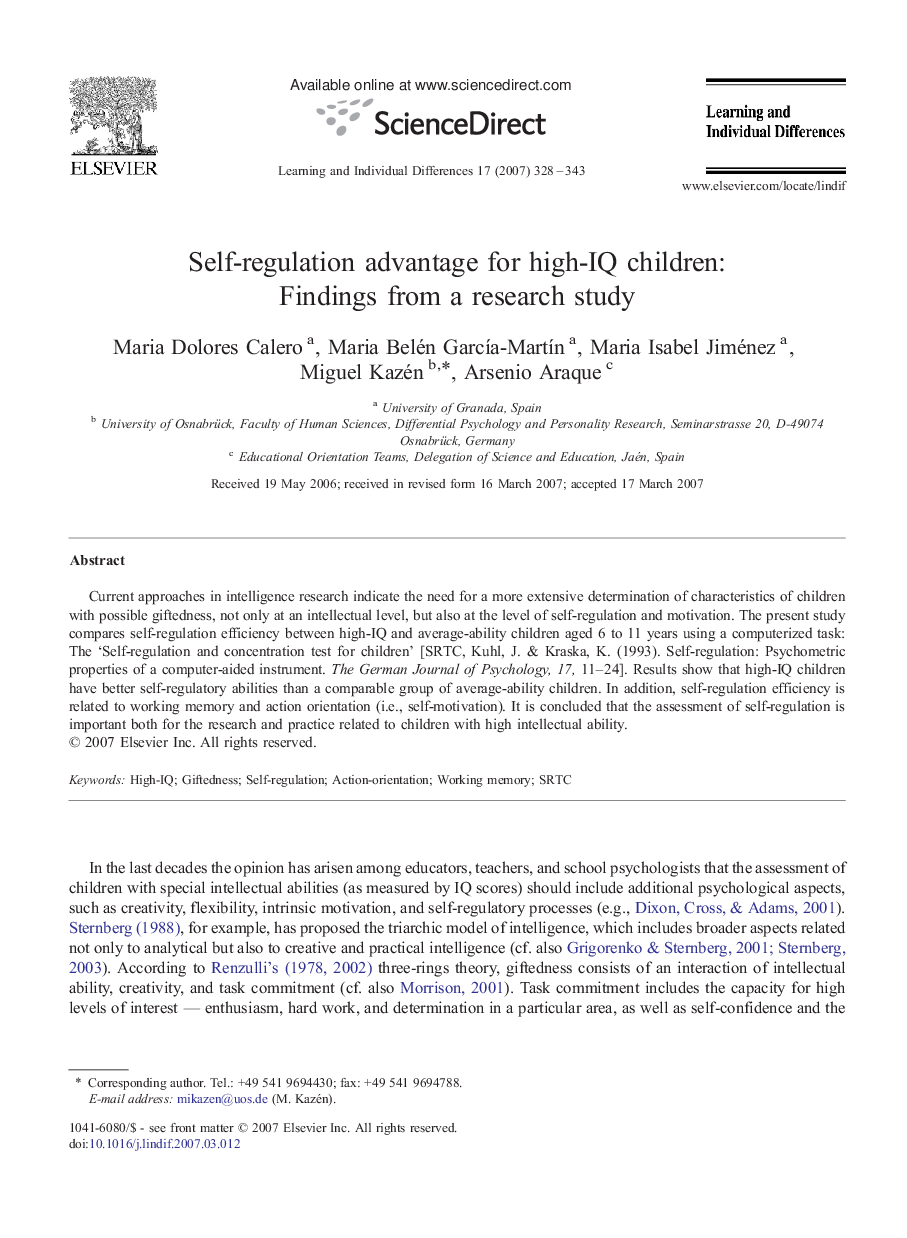| Article ID | Journal | Published Year | Pages | File Type |
|---|---|---|---|---|
| 365352 | Learning and Individual Differences | 2007 | 16 Pages |
Current approaches in intelligence research indicate the need for a more extensive determination of characteristics of children with possible giftedness, not only at an intellectual level, but also at the level of self-regulation and motivation. The present study compares self-regulation efficiency between high-IQ and average-ability children aged 6 to 11 years using a computerized task: The ‘Self-regulation and concentration test for children’ [SRTC, Kuhl, J. & Kraska, K. (1993). Self-regulation: Psychometric properties of a computer-aided instrument. The German Journal of Psychology, 17, 11–24]. Results show that high-IQ children have better self-regulatory abilities than a comparable group of average-ability children. In addition, self-regulation efficiency is related to working memory and action orientation (i.e., self-motivation). It is concluded that the assessment of self-regulation is important both for the research and practice related to children with high intellectual ability.
